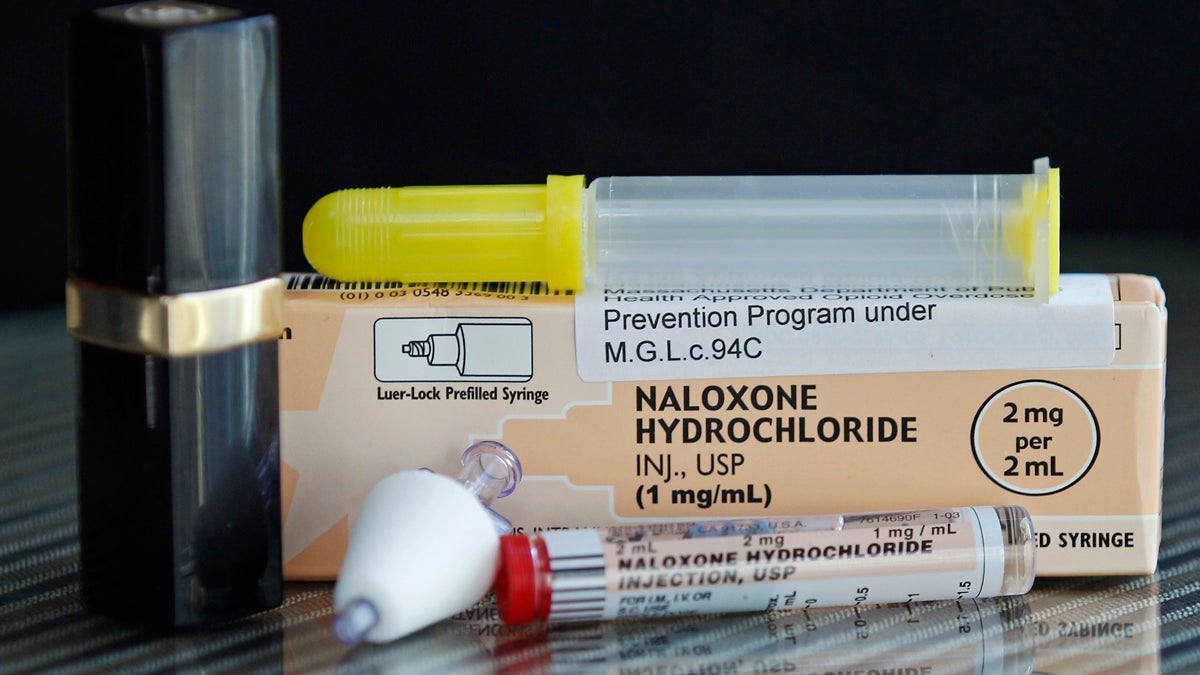Life-saving drug for opioid users now available through a N.J. nonprofit

In this Tuesday Feb. 27, 2012 photo, a tube of Naloxone Hydrochloride, also known as Narcan, is shown for scale next to a lipstick container in Quincy, Mass., home. Narcan is a nasal spray used as an antidote for opiate drug overdoses. The drug counteracts the effects of heroin, OxyContin and other powerful painkillers and has been routinely used by ambulance crews and emergency rooms in the U.S. and other countries for decades. But in the past few years, public health officials across the nation have been distributing it free to addicts and their loved ones, as well as to some police and firefighters. (Charles Krupa/AP Photo, file)
Accidental drug overdose is the leading cause of injury-related deaths in New Jersey. A South Jersey advocacy organization has launched the state’s first anti-opioid distribution program in Atlantic City in hopes of reducing these deaths among heroin and morphine users.
The drug naloxone, which counters the effects of heroin and morphine, is administered primarily when users of these opioids have overdosed.
The South Jersey AIDS Alliance will distribute the drug free to users and others to help prevent accidental overdose.
“A lot of our program participants don’t see doctors on a regular basis and they don’t have insurance. We may be the only medical care they get coming to see our nurse on a regular basis,” said Georgett Watson, chief operations officer of the alliance. “There’s a stigma around being an injection drug user, so they avoid going to doctors or they are homeless. Or they don’t have insurance, so there would be no other way for them to acquire the drug.”
David Humes, who lives in Delaware, supports making naloxone more readily available. His son died of an overdose after his friends left him in the parking lot of a hospital.
“In the instance of my son’s death, some people, had they had access to it their on the spot, could have administered the drug or called 911 to [administer] the drug and could have saved his life,” Humes said
The Drug Policy Alliance has donated $25,000 to the South Jersey AIDS Alliance for distribution of the drug.
New Jersey’s Overdose Prevention Act, signed in May, increases access to naloxone and allows laypeople to administer the drug. Sixteen states and the District of Columbia have similar laws.
WHYY is your source for fact-based, in-depth journalism and information. As a nonprofit organization, we rely on financial support from readers like you. Please give today.

